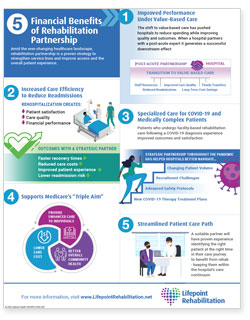7 Simple Techniques For Narconon Africa
7 Simple Techniques For Narconon Africa
Blog Article
About Narconon Africa
Table of ContentsNarconon Africa Fundamentals ExplainedIndicators on Narconon Africa You Should KnowThe Main Principles Of Narconon Africa Not known Incorrect Statements About Narconon Africa The Greatest Guide To Narconon AfricaTop Guidelines Of Narconon AfricaLittle Known Facts About Narconon Africa.
In a collection of papers with Manudeep Bhuller and Katrine V. Lken, we conquer these data challenges and the nonrandomness of jail time, supplying new understandings into just how incarceration affects recidivism, work, youngsters, and criminal networks - Complete recovery program. Figure 1 Our job research studies the results of imprisonment in Norway, a setting with two vital advantagesWe can better connect this details to other relative, consisting of youngsters and brother or sisters. We have info on co-offending that enables us to map out criminal networks for observed criminal offenses. Second, we can take advantage of the arbitrary project of criminal cases to courts that differ in their tendencies to send defendants to prison.
But some courts send out accuseds to jail at a high price, while others are a lot more forgiving. We determine a court's stringency as the ordinary incarceration price for all other situations a judge takes care of, after controlling for court and year fixed impacts, which is the level of arbitrary task. This quasi-random project of judge stringency can be used as a tool for imprisonment, as it highly predicts the court's decision in the current instance, yet is uncorrelated with various other case attributes both by style and empirically.
Narconon Africa Fundamentals Explained
Features of detainees, consisting of demographics and criminal offense classifications, are broadly comparable in Norway and various other countries, including the United States, with the exceptions that the United States homicide rate is a lot greater, and race plays a bigger role there. What stands out as different, specifically compared to the United States, is the jail system.
Number 2In Norway, the ordinary time spent in prison is a little over six months, which resembles most various other Western European nations. This contrasts with average US jail time of virtually 3 years, which remains in huge component the factor the United States is an outlier in its incarceration rate compared with the remainder of the world [Figure 1]
About Narconon Africa
This provides a lot more separation between minor and hard crooks than exists in the United States. There is no congestion in Norwegian prisons and much better individual security, with each prisoner being appointed to their own cell and a greater inmate-to-staff proportion than in the United States (https://yoomark.com/content/narconon-we-are-dedicated-one-thing-helping-you-overcome-addiction-good-part-what-makes). Prisons in Norway likewise provide well-funded education, medication treatment, psychological wellness, and work training programs
Our study on the site effects of imprisonment on the wrongdoer, using the arbitrary job of judges as an instrument, yields three key searchings for. Initially, imprisonment dissuades even more criminal actions. We discover that incarceration lowers the likelihood that an individual will reoffend within 5 years by 27 portion factors and reduces the equivalent variety of criminal fees per person by 10 fees.
Some Known Questions About Narconon Africa.
We locate substantial decreases in reoffending chances and cumulative billed criminal offenses even after offenders are launched from prison. Our 2nd result is that predisposition because of choice on unobservable individual features, if disregarded, leads to the wrong final thought that time invested in jail is criminogenic. If we just contrast criminal accuseds sentenced versus those not sentenced, we locate favorable organizations in between incarceration and succeeding criminal offense.
This stands in contrast to our analysis based on the random assignment of judges, which finds an opposite-signed result. Third, the reduction in criminal offense is driven by individuals who were not working prior to incarceration. Among these individuals, jail time enhances participation in programs directed at improving employability and lowering recidivism, and this inevitably elevates employment and revenues while discouraging criminal behavior.

Imprisonment causes a 34 percentage point boost in engagement in work training programs for the previously nonemployed, and within five years their work rate boosts by 40 percent points. At the very same time, the possibility of reoffending within five years is cut by 46 percentage factors, and there is a decline of 22 in the typical variety of criminal fees.
The Best Strategy To Use For Narconon Africa

A probable explanation for the difference is that Norway's jail system varies markedly, both in terms of prison-term length and jail conditions, from the US jail system. While recognizing the effects of imprisonment on the transgressor is a vital very first step, catching spillover results is also essential for evaluating criminal justice policy and developing reliable jail systems.
Getting The Narconon Africa To Work

Common least squares estimates disclose that children of incarcerated papas are 1 percent factor most likely to be charged with a criminal offense, about a mean of 13 percent, and reveal no effect on college grades. Using our judge stringency tool, we find no analytical proof that a father's incarceration impacts a child's very own criminal activity or college qualities, yet we are not able to dismiss modest-sized effects.
Little Known Facts About Narconon Africa.
We define criminal teams based on network links to previous criminal instances. When a criminal network member is jailed, their peers' possibility of being charged with a future criminal offense reduces by 51 percent points over the next four years - https://worldcosplay.net/member/1774072.
Report this page